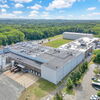Processing Your Payment
Please do not leave this page until complete. This can take a few moments.
-
News
-
Editions
-
- Lists
-
Viewpoints
-
HBJ Events
-
Event Info
- 2024 Economic Outlook Webinar Presented by: NBT Bank
- Best Places to Work in Connecticut 2024
- Top 25 Women In Business Awards 2024
- Connecticut's Family Business Awards 2024
- What's Your Story? A Small Business Giveaway 2024 Presented By: Torrington Savings Bank
- 40 Under Forty Awards 2024
- C-Suite and Lifetime Achievement Awards 2024
- Connecticut's Health Care Heroes Awards 2024
-
-
Business Calendar
-
Custom Content
- News
-
Editions
View Digital Editions
Biweekly Issues
- April 15, 2024
- April 1, 2024
- March 18, 2024
- March 4, 2024
- February 19, 2024
- February 5, 2024
- January 22, 2024
- January 8, 2024
- Dec. 11, 2023
- + More
Special Editions
- Lists
- Viewpoints
-
HBJ Events
Event Info
- View all Events
- 2024 Economic Outlook Webinar Presented by: NBT Bank
- Best Places to Work in Connecticut 2024
- Top 25 Women In Business Awards 2024
- Connecticut's Family Business Awards 2024
- What's Your Story? A Small Business Giveaway 2024 Presented By: Torrington Savings Bank
- 40 Under Forty Awards 2024
- C-Suite and Lifetime Achievement Awards 2024
- Connecticut's Health Care Heroes Awards 2024
Award Honorees
- Business Calendar
- Custom Content
How a fifth-generation manufacturing CEO learned by doing — with a few hard lessons along the way
 File Photo
CEO Mayer is the fifth generation of her family to head Bead Industries.
File Photo
CEO Mayer is the fifth generation of her family to head Bead Industries.
You might think that being the fifth generation of your family responsible for a business that has nurtured and sustained you and yours, kith and kin, for more than a century would be pressure enough to last a lifetime.
Or maybe five lifetimes.
Actually, though, Jill Bryant Mayer puts enough pressure on herself to shepherd Bead Industries into its second century to more than outweigh the expectations of her parents, her two sisters, her husband and their two little boys — combined.
The 37-year-old Mayer, who became CEO of the 105-year-old manufacturer last January, talks a lot about the weight of the responsibility she feels for Bead’s 50-plus employees in Milford and Cheshire.
“I have 50 people’s lives in my hands — their families, their daily bread,” Mayer says. “It’s a huge responsibility.”
Founded in 1914 by Mayer’s great-great-grandfather, Waldo Calvin Bryant, the enterprise has operated continuously through two world wars, the 1929 stock-market crash, the Great Depression, 9/11, the great recession of 2008, globalization and decline of U.S and Connecticut manufacturing.
Bead Chain used to manufacture, well, bead chain — that metal chain attached to closet lights and drain plugs and sundry other household fixtures. In 1987 the company changed its name to Bead Industries to reflect its evolving refocusing on its high- growth, high-margin electronics business.
Bead’s main facility in Milford primarily manufactures electronic contact pins. A subsidiary acquired by Bead in 1972, the McGuire Manufacturing Co. in Cheshire, produces high-end plumbing fixture trim. And yes, Bead still sells bead chain, although nowadays it is manufactured in South Korea.
Despite the many changes over more than a century, Mayer is keenly conscious of “the continuity of the business: We’ve been around for 105 years. We’re trying to keep this thing going,” she says. And whether they’ve worked at Bead for a dozen years, like the CEO, or for four decades, like some of the workers on the shop floor, “Everyone is working for the good of the company,” Mayer says, in a way that makes you think she really means it.
Chain reaction
Born in 1863, Waldo Calvin Bryant was a member of the generation of inventors such as Thomas Edison, Henry Ford and Alexander Graham Bell whose innovations revolutionized daily human life. Trained as a mechanical engineer, he learned electrical engineering after college. In 1888 Bryant was granted U.S. patent number 391,943 for the first completely enclosed electric switch, which made possible safer use of electricity in homes and businesses than existing exposed electrical switches. The following year he incorporated the Bryant Electric Co. in Bridgeport using $1,000 his parents had mortgaged from their home.
In 1901 Westinghouse Electric purchased a controlling interest in Bryant Electric, which within five years had become the largest employer in Bridgeport and the largest manufacturer of wiring devices on the planet.
One of Calvin Bryant’s contemporaries and associates was Harvey Hubbell, who founded the company that today bears his name and patented an electric light pull socket. Bryant Electric Co. engineers refined and patented variations of Hubbell’s pull socket — one of which used beaded chain to turn an electric lamp on and off. By 1910 the beaded chain pull socket was the Bryant Electric Co.’s principal product line, and the company name would soon reflect that: On March 17, 1914, Waldo Calvin Bryant, his son Waldo Gerald (Gerry) Bryant and Gilbert W. Goodridge incorporated the Bead Chain Manufacturing Co. A year later the company began construction of the Bridgeport factory at State and Mountain Grove streets that would be its home for nearly 90 years before Bead moved to Milford in 2003.
Bead added an electronics division in the 1920s to manufacture metal contact pins for the vacuum tubes that powered radio sets that were becoming a fixture in every American household. During the following decade Bead’s electronics business would diversify into producing contact pins for fluorescent lamps. At its height Bead employed 300 workers on three shifts.
Jill Mayer’s father, Kenneth E. Bryant, didn’t grow up in the family business but spent much of his life in Alaska (where Jill and her two sisters were born) before his father, W. Dexter Bryant, asked him to join the company’s board of directors in 1997 as he (Dexter) pondered retirement. The following year Ken Bryant would relocate his family to Connecticut as Dexter handed him the keys as CEO, making him the fourth generation of Bryants to lead Bead.
Ken Bryant navigated Bead through the turbulent transition to the 21st century, including the tidal wave of low-cost Asian competition (which his would later leverage by outsourcing bead-chain manufacturing to South Korea), the burst of the telecom bubble in 1999 and increasingly urgent need to replace an outdated factory building and older machinery. Even as he “right-sized” Bead, relocated the company to Milford and embraced “lean” manufacturing principles and practices, Ken Bryant determined that, should he ever have the opportunity to vouchsafe Bead to a fifth generation of Bryants, he would never just “hand over the keys” and walk out the door — as his father had done with him.
Training wheels
Which is why Jillian Bryant Mayer was always on the “five-year plan” — a deliberate, well-thought-out succession trajectory that began with her beginning her professional career working elsewhere before coming “home” to the family business a decade ago at age 27, now married and with two boys soon to arrive on the scene.
She joined the company as finance manager (an position that was open at the time, not a sinecure — “I couldn’t just go where I wanted to work,” she explains) before rising to CFO and then being named president (her “training wheels” executive title, she calls it) before becoming CEO in January 2018 when her father finally retired (sort of — he still shows up at the plant during the months he and his wife aren’t in Arizona, though his daughter refuses to give him his own desk).
The challenges that confronted Mayer when she took the reins of the family business at last were stiff, if not entirely unfamiliar to other manufacturing executives, especially in the Northeast. A highly skilled but aging workforce hurtling toward retirement, with too few trained and motivated members of her own generation standing in the wings.
A senior executive at Bead’s McGuire Manufacturing subsidiary “had a real problem with someone half his age and female managing him,” Mayer recounts. “I was in there like a dirty shirt saying, ‘Let’s work together; let’s share best practices with the two companies.’ He was not happy that I was over there messing with his company.” He left that same year, followed by two other senior managers. “After that the negative culture over there changed drastically,” she says.
Mayer recounts the example of another Connecticut manufacturer that shut down after 80-plus years in business because the company could no longer find tool-makers. “That could have been us,” Mayer says now. “But we punched through it. We had two of our top tool-makers retire, so we changed our technology and our strategy. It’s not like we automated everything and now we don’t need [tool-makers]; we got technology so that the skills set we need is different. Now we need CNC programmers.”
Even more than that, Jill Mayer transformed the culture at Bead — not just in the executive suite, but on the shop floor. Decision-making is more transparent, more consultative.
“The culture of the company when I first came 11 years ago was a little bit stale — both in terms of the physical space, but also no one really talked much to [employees in other departments]. If you were in accounting, you never saw an engineer. It just felt very compartmentalized.
“One of first things I did after my father retired was to have weekly ‘huddles,’ where we all got in the middle of the lobby and just talked about what we were doing this week. It kind of got us out of our holes and that really created a sense of team.”
Despite the bumps in the road and learning to manage the stresses of a family business to which she’s now married (literally and figuratively; her husband Kevin Mayer is EVP at McGuire), which included making major lifestyle changes to balance her career with the demands of raising a young family, Jill Mayer exudes a quiet confidence that flows from her core principles as a leader — but also openness to new ideas and ways of looking at the business.
“Jill has amazing energy and stamina and has found a way to balance family, work and volunteer commitments,” says Jamison Scott, executive director of the New Haven Manufacturers Association, on whose board Mayer sits. “She is to be admired for her dedication in supporting the manufacturing community.”
“I thought I would eventually know it all — but every year that goes by I learn more what I don’t know,” Mayer says with a laugh. “But I also have learned that it’s okay that I don’t know everything. That why you hire intelligent, capable people. Trusting your people and understanding the key points” are the traits a CEO needs more than any others.
“I don’t have an engineering degree,” Jil Mayer says. “Our products, our processes are very technical. What our customers need? Technical. My focus is really our team, our people, our employees. I’m really a support, a cheerleader, for them. That’s what this role has been turning into.” The lesson? “Turns out it’s okay to ask for help,” Mayer says, “because it really does take a village.”

2022 Giving Guide
This special edition informs and connects businesses with nonprofit organizations that are aligned with what they care about. Each nonprofit profile provides a crisp snapshot of the organization’s mission, goals, area of service, giving and volunteer opportunities and board leadership.
Learn more
Subscribe
Hartford Business Journal provides the top coverage of news, trends, data, politics and personalities of the area’s business community. Get the news and information you need from the award-winning writers at HBJ. Don’t miss out - subscribe today.
Subscribe
2024 Book of Lists
Delivering Vital Marketplace Content and Context to Senior Decision Makers Throughout Greater Hartford and the State ... All Year Long!
Read Here-
2022 Giving Guide
This special edition informs and connects businesses with nonprofit organizations that are aligned with what they care about. Each nonprofit profile provides a crisp snapshot of the organization’s mission, goals, area of service, giving and volunteer opportunities and board leadership.
-
Subscribe
Hartford Business Journal provides the top coverage of news, trends, data, politics and personalities of the area’s business community. Get the news and information you need from the award-winning writers at HBJ. Don’t miss out - subscribe today.
-
2024 Book of Lists
Delivering Vital Marketplace Content and Context to Senior Decision Makers Throughout Greater Hartford and the State ... All Year Long!
ABOUT
ADVERTISE
NEW ENGLAND BUSINESS MEDIA SITES
No articles left
Get access now
In order to use this feature, we need some information from you. You can also login or register for a free account.
By clicking submit you are agreeing to our cookie usage and Privacy Policy
Already have an account? Login
Already have an account? Login
Want to create an account? Register
Get access now
In order to use this feature, we need some information from you. You can also login or register for a free account.
By clicking submit you are agreeing to our cookie usage and Privacy Policy
Already have an account? Login
Already have an account? Login
Want to create an account? Register






0 Comments